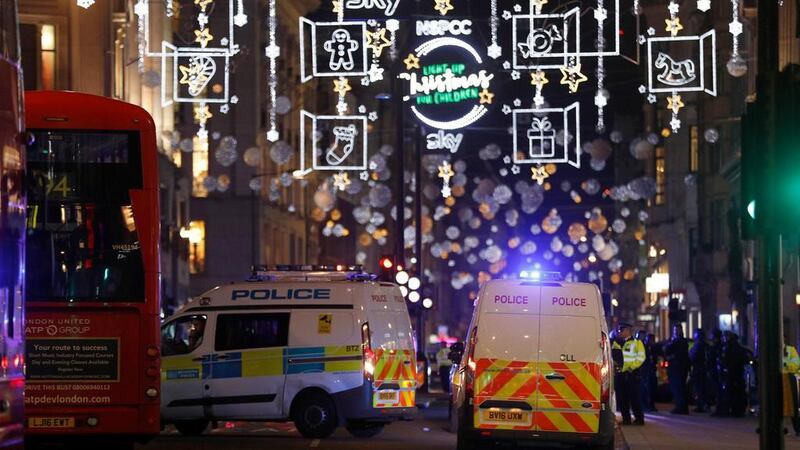Some acts of terrorism – and the despicable attack on a Sinai mosque is among them – are so horrific that talk of responding with a stiff upper lip seems not only meaningless but offensive to the bereaved.
But in a general sense, successful resistance to extremists without any trace of human value does require a spirit of defiance, an insistence that life goes on in spite of their wickedness. Adopting a measured response is arguably as much a duty as it is desirable.
No matter how harrowing individual atrocities may be, it remains broadly true that terrorists have limited capacity to damage society as a whole. While any of us could find ourselves caught up in an outrage, the chances of it happening – except, of course, in conflict zones – are still small.
The psychology of terror was demonstrated in mundane ways on the busy shopping day of Black Friday, when fears that an attack was underway in the Oxford Circus area of central London sparked panic. Confirmation that no such incident had taken place came after hundreds of people had fled the scene in fright or found themselves locked as a precaution inside shops, restaurants and other premises.
________________
Read more from Opinion
[ Damien McElroy: Out with the old, in with the new ]
[ Hussein Ibish: Tunisia's fledgling democracy is evolving in inspiring ways ]
________________
The reaction was understandable. I was in the area and experienced 10 seconds of fear as scores of people, some screaming or in tears, charged upstairs from the ground floor of a cinema complex to the bar where I was seated.
Brief as the period of anxiety may have been, there was time for imaginations to run wild: would the hordes be followed by armed fanatics intent on mass murder? There was also emotional paralysis. What would I do next to escape or, if brave enough, intervene?
Fortunately, there was no need. No one I spoke to seemed to know why they were running, save to repeat vague and, it turned out, untrue reports of gunfire, people being killed or wounded.
Social media had, not for the first time, made matters worse and a major British newspaper was among the culprits. The Daily Mail's website tweeted a wholly false message about shots being fired and armed police surrounding Oxford Circus Tube station after a lorry "plough[ed] into pedestrians".
The tweet was an accident. MailOnline later apologised for making a "grave error" but with glaring hypcorisy ran a report implying that the pop singer Olly Murs had added to the alarm by tweeting about what he thought was gunfire in a department store.
From such misreporting and confusion, ISIL and similar perpetrators of evil profit without lifting a finger. Their cynical aim to spread terror is unwittingly aided by its enemies.
The dangers are hardly unknown. Witness the haste with which authorities deny them spurious pride by offering swift reassurance when an incident is shown to have originated from an individual’s mental state or been a product of “ordinary” crime.
None of this can minimise the horror felt by people trapped in or near a mosque under mass attack in Egypt, or a concert hall in Paris, or desperately trying to flee a New York building struck by aircraft.
Repulsive figures of hate have created an atmosphere of apprehension. We adapt to the the possibility of sudden, brutal interruption to everyday life, while also relying on security services to develop ever more effective means of prevention and detection.
But human nature dictates that even innocuous events – or, as in that recent London case, non-events – will occasionally cause outbreaks of panic. Perhaps the overriding need is to refuse to surrender to the phenomenon and, without dropping our guard, maintain a true sense of proportion.





